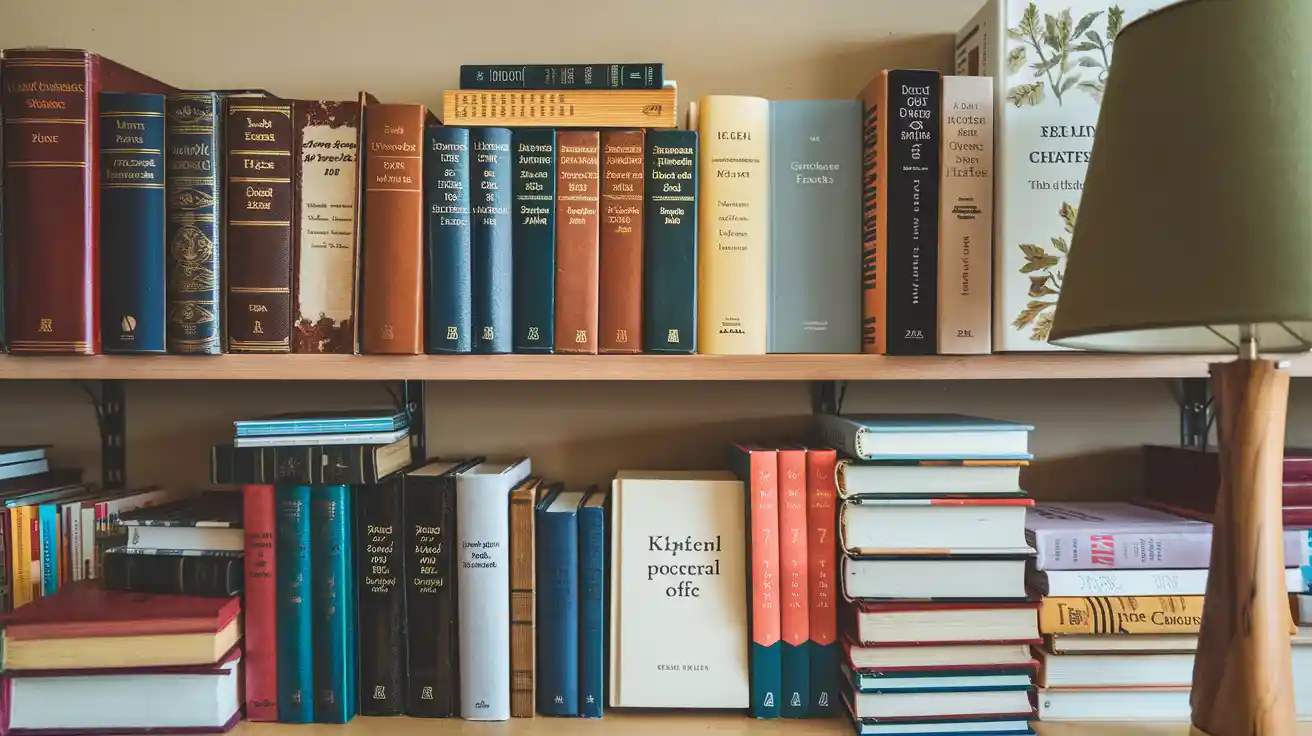
Poetry Books
Poetry books hold a special place in literature, weaving emotions, imagery, and rhythm into words that resonate deeply. Whether you’re a lifelong poetry lover or a curious newcomer, these collections offer something unique. From classic sonnets to modern free verse, poetry books Poetry Books capture the human experience in ways prose cannot. This guide dives into the world of poetry books, exploring their history, types, and how to choose the perfect collection. Additionally, we’ll highlight top recommendations and tips to enrich your reading journey. So, let’s embark on this poetic adventure and uncover the magic of poetry books together.
What Are Poetry Books?
Poetry books are collections of poems, often curated around themes, styles, or a poet’s body of work. Unlike novels, they prioritize concise, evocative language to express emotions or ideas. For instance, a poetry book might explore love, nature, or social issues through carefully crafted verses. Historically, poets like William Shakespeare and Emily Dickinson published collections that remain timeless. Today, poets like Rupi Kaur bring fresh perspectives to the genre. Consequently, poetry books appeal to diverse readers, offering emotional depth in compact forms. Whether you prefer rhymed sonnets or experimental prose poetry, these books provide a unique lens into the human soul.
The History of Poetry Books
Poetry has existed for centuries, evolving from oral traditions to written collections. Ancient works like The Epic of Gilgamesh laid the foundation for poetic storytelling. By the Middle Ages, poets like Dante Alighieri published structured works, shaping modern poetry books. The Renaissance brought sonnets, with Shakespeare’s collections gaining fame. In the 19th century, Romantic poets like William Wordsworth emphasized emotion, influencing modern poetry. Today, poetry books thrive in various forms, from traditional to avant-garde. As a result, their rich history reflects humanity’s evolving voice. Exploring this timeline helps readers appreciate the depth and diversity of poetry collections available now.
Why Poetry Books Matter
Poetry books offer more than beautiful words; they connect readers to universal truths. Through metaphor and rhythm, they express complex emotions succinctly. For example, Maya Angelou’s Still I Rise uplifts with its powerful message of resilience. Moreover, poetry books foster empathy, encouraging readers to see the world through others’ eyes. They also sharpen critical thinking by inviting interpretation. Unlike lengthy novels, poetry collections deliver impactful messages in fewer words, making them accessible. Therefore, they remain relevant, offering solace, inspiration, and reflection. Whether you’re seeking comfort or creativity, poetry books provide a meaningful escape into the beauty of language.
Types of Poetry Books
Classic Poetry Collections
Classic poetry books, like those by John Keats or Robert Frost, remain timeless treasures. These works often feature structured forms, such as sonnets or odes, with rich imagery. For instance, Keats’ Odes explore beauty and mortality with elegance. Consequently, they appeal to readers who enjoy traditional styles. Many classics also reflect historical contexts, offering insights into past eras. Reading these collections feels like stepping into a different time. Thus, they’re perfect for those who appreciate literary history and disciplined craftsmanship. Exploring classic poetry books opens a window to enduring human experiences, making them essential for any poetry lover.
Modern Poetry Books
Modern poetry books, such as those by Ocean Vuong or Amanda Gorman, embrace diverse styles. Unlike classics, they often favor free verse, exploring contemporary issues like identity or social justice. For example, Vuong’s Night Sky with Exit Wounds blends personal and cultural narratives. As a result, these books resonate with younger readers seeking relatable themes. They also experiment with form, sometimes incorporating visuals or prose. Consequently, modern poetry feels dynamic and accessible. If you’re new to poetry, these collections offer an inviting entry point. Their bold voices and fresh perspectives make them a vibrant part of today’s literary landscape.
Themed Poetry Collections
Themed poetry books focus on specific topics, such as love, grief, or nature. For instance, Pablo Neruda’s Twenty Love Poems and a Song of Despair captures romance’s intensity. Similarly, Mary Oliver’s nature-focused collections celebrate the natural world. These books allow readers to connect deeply with a single theme. As a result, they’re ideal for those exploring specific emotions or experiences. Themed collections also make thoughtful gifts, resonating with readers’ personal journeys. Therefore, they offer a focused, immersive reading experience. Whether you’re drawn to joy or sorrow, themed poetry books provide a tailored poetic escape.
Anthologies and Collected Works
Poetry anthologies compile works from multiple poets, offering a broad perspective. For example, The Norton Anthology of Poetry spans centuries and styles, showcasing diversity. Meanwhile, collected works, like Sylvia Plath’s The Collected Poems, focus on one poet’s oeuvre. Consequently, anthologies suit readers seeking variety, while collected works appeal to fans of specific poets. Both types provide rich, multifaceted experiences. Moreover, they introduce readers to new voices and styles. If you’re unsure where to start, anthologies offer a curated selection, making them excellent for beginners. Exploring these collections broadens your poetic horizons significantly.
How to Choose the Best Poetry Books
Selecting the right poetry book depends on your preferences and goals. First, consider your interests—do you prefer classic or modern styles? For example, if you love structured rhyme, try Shakespeare’s sonnets. Next, explore themes that resonate, like love or social change. Reading reviews on platforms like Goodreads helps gauge a book’s impact. Additionally, check the poet’s background for authenticity and expertise. For beginners, accessible poets like Rupi Kaur are great starting points. Finally, visit local bookstores or libraries to browse collections. By aligning your choice with your tastes, you’ll find a poetry book that inspires and captivates.
Top 10 Poetry Books to Read in 2025
| Read More About : Slam Poetry: Unleashing Your Voice Through Performance Poetry |
1. The Collected Poems by Sylvia Plath
Sylvia Plath’s The Collected Poems is a haunting exploration of emotion and identity. Her vivid imagery and confessional style captivate readers. For instance, “Lady Lazarus” showcases her raw intensity. Consequently, this collection suits those who enjoy introspective poetry. Plath’s work remains influential, offering timeless insights. Therefore, it’s a must-read for poetry enthusiasts.
2. Milk and Honey by Rupi Kaur
Rupi Kaur’s Milk and Honey blends simplicity with profound emotion. Its free verse and minimalist style resonate widely. For example, her poems on love and healing feel deeply personal. As a result, it’s perfect for new poetry readers. Kaur’s accessibility makes this a modern classic. Thus, it’s an excellent entry into contemporary poetry books.
3. Leaves of Grass by Walt Whitman
Walt Whitman’s Leaves of Grass celebrates humanity and nature with exuberance. His free verse broke traditional boundaries, inspiring generations. For instance, “Song of Myself” exudes universal connection. Consequently, it appeals to readers seeking expansive, uplifting poetry. Whitman’s work remains a cornerstone of American literature. Therefore, it’s essential for poetry lovers.
4. Night Sky with Exit Wounds by Ocean Vuong
Ocean Vuong’s debut collection explores identity, family, and loss. His lyrical style weaves personal and cultural narratives. For example, “Aubade with Burning City” blends history with emotion. As a result, it resonates with readers seeking depth. Vuong’s fresh voice makes this a standout. Thus, it’s a must for modern poetry fans.
5. The Waste Land by T.S. Eliot
T.S. Eliot’s The Waste Land is a modernist masterpiece. Its fragmented structure mirrors post-war disillusionment. For instance, its rich allusions demand active engagement. Consequently, it suits readers who enjoy complex works. Eliot’s influence on poetry endures, making this essential. Therefore, dive into this challenging yet rewarding collection.
6. Ariel by Sylvia Plath
Another gem by Plath, Ariel showcases her bold, visceral style. Poems like “Daddy” explore personal and historical trauma. As a result, it captivates readers who appreciate intensity. Its concise yet powerful verses leave lasting impressions. Consequently, it’s ideal for those seeking emotional depth. Plath’s brilliance shines in this collection.
7. Twenty Love Poems and a Song of Despair by Pablo Neruda
Neruda’s collection is a passionate ode to love and longing. Its sensual imagery captivates readers globally. For example, “Poem XX” blends romance with melancholy. Consequently, it’s perfect for those drawn to emotional poetry. Neruda’s timeless work resonates deeply. Thus, it’s a romantic essential for poetry lovers.
8. Devotions by Mary Oliver
Mary Oliver’s Devotions celebrates nature with serene clarity. Her accessible style invites reflection. For instance, “The Summer Day” questions life’s purpose beautifully. As a result, it suits readers seeking calm inspiration. Oliver’s work feels like a meditative escape. Therefore, it’s a must for nature poetry enthusiasts.
9. The Essential Rumi by Jalaluddin Rumi
Rumi’s mystical poetry transcends time, blending spirituality and love. His work, translated by Coleman Barks, feels accessible yet profound. For example, “The Guest House” embraces all emotions. Consequently, it appeals to readers seeking wisdom. Rumi’s universal themes resonate widely. Thus, this collection is a spiritual treasure.
10. Citizen: An American Lyric by Claudia Rankine
Claudia Rankine’s Citizen blends poetry and prose to explore race and identity. Its raw honesty challenges readers. For instance, it addresses microaggressions with stark clarity. As a result, it suits those seeking socially relevant poetry. Rankine’s innovative style pushes boundaries. Therefore, it’s a vital modern read.
Tips for Enjoying Poetry Books
To fully appreciate poetry books, approach them with an open mind. First, read slowly, savoring each line’s rhythm and imagery. For example, re-reading a poem often reveals new meanings. Additionally, annotate your thoughts to deepen understanding. Joining poetry groups or online forums fosters discussion and insight. Moreover, try reading aloud to feel the poem’s cadence. Exploring the poet’s background also adds context. For instance, understanding Plath’s life enhances Ariel’s impact. Finally, don’t rush—poetry rewards patience. By engaging actively, you’ll uncover the layers that make poetry books so enriching and unforgettable.
Where to Find Poetry Books
Poetry books are widely available, both online and offline. Major retailers like Amazon and Barnes & Noble offer extensive collections. For example, Amazon’s poetry section features classics and new releases. Additionally, independent bookstores often curate unique selections, supporting local businesses. Libraries provide free access, ideal for exploring without commitment. Moreover, platforms like Bookshop.org support indie sellers while offering convenience. For rare or vintage poetry books, try AbeBooks or thrift stores. Finally, e-books and audiobooks, available on Kindle or Audible, suit digital readers. By exploring these options, you’ll find poetry books that match your taste and budget effortlessly.
The Benefits of Reading Poetry Books
Reading poetry books sharpens emotional intelligence and creativity. For instance, deciphering metaphors hones critical thinking. Additionally, poetry’s concise nature makes it accessible for busy readers. It also fosters empathy by presenting diverse perspectives. For example, Rankine’s Citizen illuminates social issues powerfully. Moreover, poetry reduces stress, offering a meditative escape. Studies show that reading poetry can lower anxiety levels significantly. Consequently, it’s a perfect addition to self-care routines. Whether you seek inspiration or solace, poetry books deliver profound benefits. Thus, incorporating them into your reading habits enriches both mind and soul in meaningful ways.
How to Start Writing Your Own Poetry
Inspired by poetry books? Start writing your own! First, choose a theme, like love or nature, to focus your thoughts. Next, experiment with forms, such as haikus or free verse. For example, a haiku captures a moment in 17 syllables. Additionally, keep a journal for spontaneous ideas. Reading widely, from Rumi to Kaur, sparks creativity. Moreover, don’t fear imperfection—first drafts are rarely flawless. Joining writing groups or workshops offers feedback and encouragement. Finally, revise ruthlessly to refine your voice. By practicing consistently, you’ll craft poems that rival your favorite poetry books, expressing your unique perspective.
FAQs
What Are the Best Poetry Books for Beginners?
Beginners should start with accessible collections like Milk and Honey by Rupi Kaur or Devotions by Mary Oliver. These books use simple language and relatable themes. For instance, Kaur’s work explores love and healing concisely. Anthologies like The Norton Anthology of Poetry also introduce diverse voices. Consequently, they’re ideal for discovering your preferences. Start with these, and you’ll ease into poetry effortlessly.
How Do I Understand Poetry Better?
Understanding poetry requires patience and practice. First, read slowly, noting imagery and emotions. For example, highlight lines that resonate. Additionally, research the poet’s context for deeper insight. Joining book clubs or online forums fosters discussion. Moreover, reading aloud reveals rhythm and tone. By engaging actively, you’ll uncover poetry’s layers and appreciate its beauty more fully.
Where Can I Buy Poetry Books Online?
You can buy poetry books on Amazon, Barnes & Noble, or Bookshop.org. For instance, Amazon offers vast selections and e-books. Bookshop.org supports indie bookstores, ensuring ethical purchases. Additionally, AbeBooks specializes in rare editions. Many platforms also offer audiobooks for convenience. Therefore, explore these sites to find poetry books that suit your taste and budget.
Why Are Poetry Books So Popular?
Poetry books are popular because they distill complex emotions into concise, powerful words. For example, they offer quick yet profound reading experiences. Additionally, modern poets like Amanda Gorman address timely issues, attracting diverse readers. Their emotional depth fosters connection and reflection. Consequently, poetry books remain beloved for their accessibility and ability to resonate across generations and cultures.
Conclusion:
Poetry books offer a unique blend of beauty, emotion, and insight, making them essential for any reader. From classic collections by Shakespeare to modern works by Ocean Vuong, there’s a poetry book for everyone. By exploring different styles and themes, you’ll discover works that inspire and challenge you. Moreover, reading poetry enriches your mind and soul, fostering creativity and empathy. So, why wait? Visit your local bookstore, browse online, or borrow from a library to start your poetic journey. Dive into a poetry book today, and let its words transform your perspective. Your next favorite read awaits!





